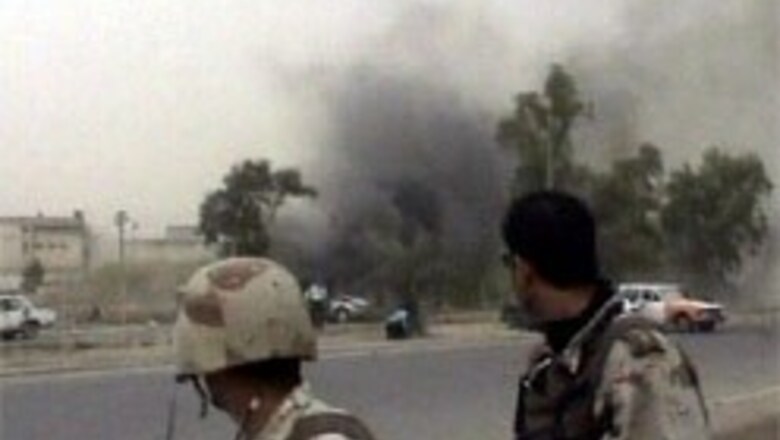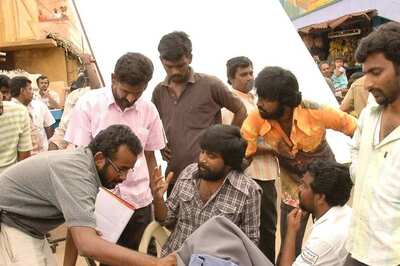
views
Washington: A series of war games held in the US to anticipate problems that would follow an Iraq invasion had factored in some 4,00,000 troops, and still concluded that the end result would be a mess with the country turning into a failed state, according to a recently declassified document.
The worst part is that the lessons and recommendations of 'Desert Crossing', held seven years ago, were totally ignored by the Pentagon as they were planning for the 2003 invasion and occupation, with Defence Secretary Donald Rumsfeld concluding at the time that 1,60,000 troops would be sufficient, a judgement that is still being questioned today.
When CENTCOM retired General Antony Zinni asked Pentagon planners to go back to the After Action Report he made, the response was apparently along the lines of "Never heard of it".
The plans and the detailed notes of Desert Crossing have now surfaced in response to a Freedom of Information Act requested by the National Security Archive that has posted the materials on its web site.
"The conventional wisdom is the US mistake in Iraq was not enough troops, but the Desert Crossing war game in 1999 suggests we would have ended up with a failed state even with 4,00,000 troops on the ground," remarked the Director of the National Archives Thomas Blanton.
The declassified material shed light on what was thought of as the "worst case" and "most likely scenarios" of a post war and post Saddam Hussein era in Iraq. The 1999 report stressed a number of recommendations for further planning on regime change in Iraq, but was pessimistic of the outcome of such actions.
"The results of Desert Crossing...drew pessimistic conclusions regarding the immediate possible outcomes of such action. Some of these conclusions are interestingly similar to the events which actually occurred after Saddam was overthrown.
"The report forewarned that regime change may cause regional instability by opening the doors to rival forces bidding for power which, in turn, could cause societal fragmentation along religious and/or ethnic lines and antagonise aggressive neighbours," the Archives has said.
PAGE_BREAK
The report illuminated worries that secure borders and a restoration of civil order may not be enough to stabilise Iraq if the replacement government were perceived as weak, subservient to outside powers, or out of touch with other regional governments.
"An exit strategy, the report said, would also be complicated by differing visions for a post-Saddam Iraq among those involved in the conflict," it has been pointed out.
And strikingly, Desert Crossing was able to visualise the nature of the new Iraqi government. "If the US were to establish a transitional government, it would likely encounter difficulty, some groups discussed, from a 'period of widespread bloodshed in which various factions seek to eliminate their enemies,' " the Archives said.
The Archives also pointed out that the Report of 1999 stressed that the creation of an Iraqi government that was democratic was not feasible.
Zinni has claimed that his report was not even in the radar screen much less looked up as some kind of a meaningful reference. "When it looked like we were going in (to Iraq), I called back down to CENTCOM and said, 'You need to dust off Desert Crossing.' They said, 'What's that? Never heard of it.'
"So in a matter of just a few years it was gone. The corporate memory. And in addition I was told, 'We've been told not to do any of the planning. It would all be done in the Pentagon.'" the Retired General said.
The planning at the Pentagon substantially revised what Zinni would have had in Iraq in 2003 and down the line – the original conception was changed in some fundamental ways.
For example, Zinni proposed a civilian occupation authority with offices in all eighteen Iraqi provinces, whereas the Coalition Provisional Authority (CPA) was actually established only in Baghdad.
But at the heart of the Iraq debate is if more troops would have been necessary to get the job done – Zinni had proposed 4,00,000 in 1999.
















Comments
0 comment